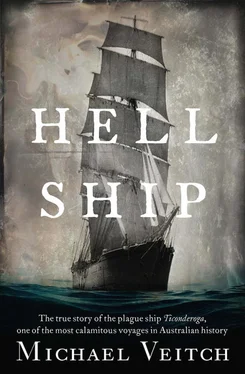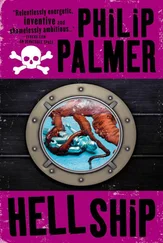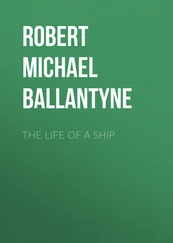Attention should be urgently directed to the injudicious and cruel system of sending out overcrowded vessels which seems to be gaining ground just now. Within the month three striking cases have occurred. The Borneuf , Wanata and Marco Polo have arrived from Liverpool with about 800 passengers each. The consequences of such overcrowding are sure to be fatal, and accordingly, the deaths were 83, 39 and 53 respectively during the voyages. The vessels were of the largest size, it is true, but it is perfectly obvious that no vessel, whatever its size, can safely carry such large numbers of passengers on a three months’ voyage.
In England, too, many who had a chance to inspect these large ships before they set sail were likewise shocked at what they encountered, as this long but pointed piece to a London daily on 27 September 1852 indicates:
The overcrowding of emigrant ships
When a body of men take it in hand to do a thing, and do not do it so much from a conviction of its being the best thing in the world they can do, but rather as a compulsory matter, they do not do it well. The juste milieu is one of those rocks ahead against which they run doggedly, and so break their pates. Now they overdo the business, as if, in a splenetic fit, they said—‘There! Take your ship; cram her full, and be off.’ Mr Osborne, the indefatigable and the zealous, gives us instance of this. He went the other day on board an emigrant ship which was just setting sail, and found that, though she was a noble vessel of her class, and that two decks (blessed are the humble in the lower deck, certainly)—were set apart for the passengers, the berths being of the proper authorized dimensions, and, as excellent arrangements were made for ventilation and other indispensable necessities as possible—still this ship (considerably under a thousand tons burthen) carried not less than eight hundred emigrants and a crew of sixty men! In addition to this, there was the stately complement of two surgeons to do battle with seasickness, fever, human miasmatic exudations. This was not a trip to Gravesend or the Naze where the heroic endurance of a few half hours of agony would be compensated for by a participation ‘in old English sports’, a polka up on the ‘gothic hill’, and a promenade ‘a la Musard’ between avenues of shrubs and ham sandwiches. It was a certain life and death affair that was to last for months—from four to eight perhaps, more or less; and here are a greater part of a thousand souls under a care of two surgeons, and a medicine chest upon the same scale as we may infer sent by the Government on such a voyage. If this be not carelessness for human life, we do not know what else to call it. We do not always know in what condition the decimated scarecrows land, but those who have voyaged across the tropics, in a crowded ship have some appreciation of the unutterable horrors men, women and children go through, or rather don’t go through. Fever and dysentery play a leading part in the ghastly drama. Want of water in calm latitudes, or under the torrid zone may be ‘better imagined than described’. Has anyone ever imagined the awful Golgotha which a plague ship becomes! If our kinsmen and our friends leave us forever to seek in a foreign land what they have failed to obtain in this, they ought not to be sent forth like felons in the hold of a convict ship or packed like the cargo of a slave vessel.
In Australia, meanwhile, one of those starting to add his doubt to the wisdom of commissioning very large vessels was Lieutenant-Governor La Trobe himself. Starting to sense the public mood, La Trobe, on 21 October when the Ticonderoga was still at sea, issued Dispatch Number 142 to his superior in London, Sir John Pakington, Secretary of State for the Colonies. In it he begged to direct ‘the serious attention of Her Majesty’s Government to the evils of disadvantages attendant upon the chartering of vessels of heavy burthen for the conveyance of large numbers of Emigrants to the colony’. [2] Letter from Governor La Trobe to Sir John Pakington, 21 October 1952, Public Record Office
The full text of that exchange has been lost, but if La Trobe’s fears were raised in this way in October, the November arrival of the Ticonderoga saw them horribly realised. In a dispatch of 9 November, he states:
I regret to be under the necessity of furnishing another example in proof of the propriety of the question being raised. On the 4th Inst. I received intimation through the Health Officer of the arrival of the Emigrant Ship ‘Ticonderoga’ from Liverpool, with 800 Government Immigrants, at the Port Phillip Heads, having lost 102 by death during her voyage from typhus and scarlet fever; and having an equal number of sick on board of the same disease; the Surgeon Superintendent also sick and the vessel in want of medicines and Medical comforts… I have appointed another Medical gentleman provided with every necessary in the way of medicines and medical comforts. Every effort will at once be made to cleanse the Ticonderoga. [3] Letter from Governor La Trobe to Sir John Pakington, 9 November, Public Record Office
News of the plague ship spread fast. The same dramatic article announcing the Ticonderoga ’s dreadful arrival in the Friday Argus was deemed important enough to be reprinted in the Geelong Advertiser the following day. With equal concern, the readers in the busy port town read of the drama unfolding even closer to their doorstep:
the authorities in Williamstown immediately furnished the government schooner Empire with the necessary supplies of live stock, beef, mutton, mild, vegetables, porter, wine spirits, and a medicine chest, and Dr Taylor, of the Ottillia , a gentleman of much practical experience, went down in her to the Ticonderoga , yesterday, to take charge, accompanied by Captain Ferguson, the Harbour Master. The Lysander ship, has also been taken up by the Government as a Quarantine Hulk, and proceeds to her destination at the Heads this day, having on board stores sufficient for all hands for three months, when further arrangements will be made which, we trust, will ameliorate the fearful state of things on board…
As dire as the situation was at Point Nepean, La Trobe was at least thankful that a full-blown crisis in busy Port Phillip had been averted due to the quick thinking of the pilot, Henry Draper, whose action to divert the Ticonderoga to the nascent sanitary station he later described as having been ‘judiciously made’. [4] Kruithof, 2002, p. 83
Captain Boyle too, fortunately, had had the wherewithal to begin offloading his passengers under his own volition without waiting for instruction. Had he made it to Melbourne, the outcry resulting from a full-blown typhus epidemic being unleashed on the under-policed and under-resourced colony in the grip of gold madness could scarcely be imagined. La Trobe could not, however, continue to count on the quick thinking of others, particularly as the newspapers were beginning to give full voice to the concerns of the public. Newspaper reporters now began to fall upon every scrap of news of the hapless vessel that they could find. On Tuesday, 9 November, The Argus published:
We have been kindly furnished with the following particulars relative to this unfortunate vessel by Charles Ferguson Esq., the Harbour Master at Williamstown, who has been down to the Heads in the Empire schooner, and returned on Sunday. It appears there were, on Friday about 714 emigrants on board; 100 deaths and nineteen births had occurred on the passage, seven of the former since the ship anchored at the Heads. There are at present 300 cases of sickness… tents have been erected with sails, spas, &c. of the ship on Point Nepean where a quarantine ground has been marked out… the Lysander ship, too, now at the Heads, will be fitted up as a hospital for the worst cases… both the surgeon and the assistant, belonging to the Ticonderoga , being in an extremely debilitated state. It is to be hoped the liberal measures being taken by the authorities in this case will counteract the further spread of the disease, which it is but natural to expect, when fresh air, exercise and liberal diet, are brought into operation.
Читать дальше












